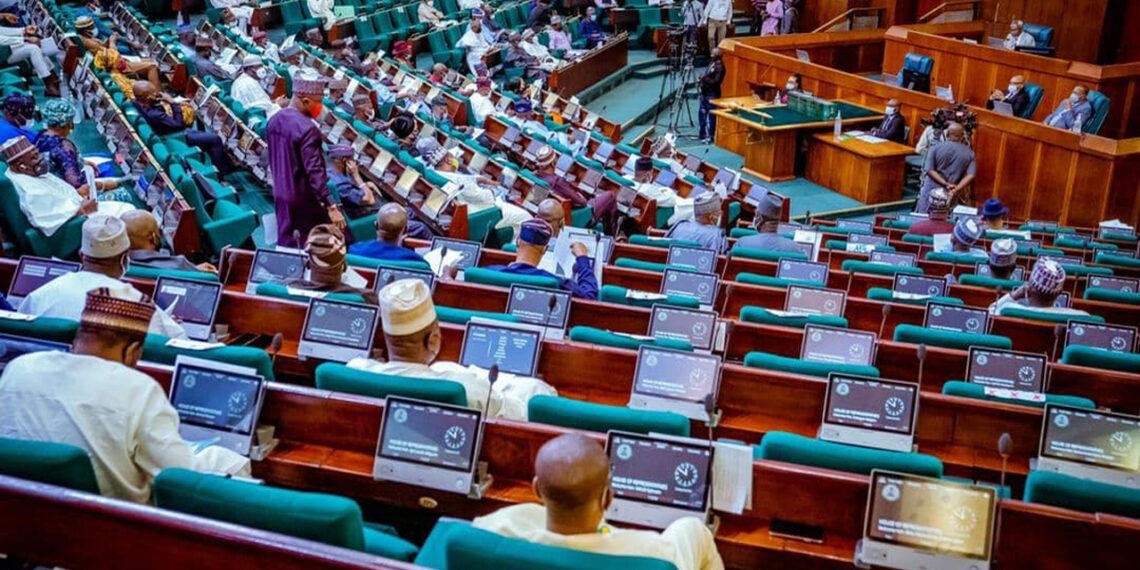A member of the House of Representatives, Sergius Ogun, representing Esan North East/Esan South East constituency, has called on the Economic and Financial Crimes Commission (EFCC) and the Independent Corrupt Practices and Other Related Offences Commission (ICPC) to investigate the presidential aspirants of the All Progressives Congress (APC) and their sponsors over the payment of N100 million Expression of Interest and Nomination Forms.
Ogun said the whopping amount for the procurement of the forms would promote corruption insisting that there is possibility that some of the persons or sponsors buying the forms may have questionable wealth.
This is coming as members of the House of Representatives said they may consider the amendment of the Electoral Act to set a benchmark for cost of forms for political parties.
They said though parties should be allowed to regulate themselves, the recent imposition of N100m on presidential aspirants by the APC to obtain nomination and expression of interest forms calls for concern.
A federal lawmaker, Solomon Bob said he might be pushing for the amendment to allow more people to participate in politics. Bob, who is a member of the House Committee on electoral matters said, “It is something worth considering, given what is happening in the APC.
What has happened now is obscene and offensive. So, why not? You know that I am always lending my support to such ideals.” Also, Hon. Nicholas Ossai said, “That is a proposal that needs to be tested.” He however noted that a comparative analysis should be done between Nigeria and other democracies.’’
However, Hon. Ben Igbakpa said parties should be given some independence, he said leaders of such parties should act like statesmen. He also stated that parties should consider the economic realities before imposing charges and levies.
Meanwhile, several Civil Society Organisations (CSOs) have called on the National Assembly to amend the Electoral Act 2022 by specifying a maximum amount political parties can sell their forms to public office aspirants. Executive Director, Socio-Economic Rights, and Accountability Project, Adetokunbo Mumuni, stated that the cost of party forms should have been regulated before campaign expenses and donations.
“That should be the starting point. If you are saying that somebody cannot sponsor a campaign more than a specific amount, and somebody cannot spend more than an amount on an election, then it should start from the parties and nomination form is procured,” Mumuni stated.
The Convener, Concerned Nigerians, Deji Adeyanyu, on his oart said, “I agree that we should amend the Electoral Act to reflect that political parties should not charge beyond a certain amount of money. “It is like they are selling the Office of the President to the highest bidder.
Read Also: Obaseki increases minimum wage to N40,000
It is like they are telling people that politics is no longer about sacrifice; it is about money-making and business ventures. They are trying to commercialise public service which was supposed to be sacrificial.”
Similarly, the Executive Director, Adopt A Goal for Development and Co-Convener, Centre for Liberty, Ariyo-Dare Atoye, recalled that the 8th National Assembly proposed a restriction of parties on the sale of forms in the amendments to the Electoral Act but the proposal was dropped after the President, Muhammadu Buhari, repeatedly declined assent to the bill.
Atoye said, “The 8th National Assembly listened to the yearnings of the youth and women, and included a cap on the cost of the nomination form, even though the political parties lobbied against and President Buhari declined assent on other grounds.
The leadership of the 9th National Assembly should be held responsible for this escalation in the cost of nomination form because they bowed to pressure from the political parties who lack ideas on how to fund themselves; who are lazy about how to sustain their parties.
“These political parties have turned themselves into exploiters. They have made the party structure available to the greedy elite and it is the road to what we call state capture.
The moment the political process is monetised to the extent that an average Nigerian cannot participate. That is a total state capture, that only a greedy few will be able to manipulate the dynamics of power.” However, Executive Chairman, Centre for Anti-corruption and Open Leadership, Debo Adeniran, noted that the cost of party forms only reflects the current economic realities in the country.






